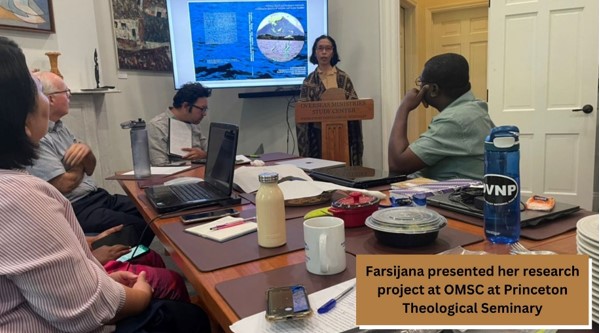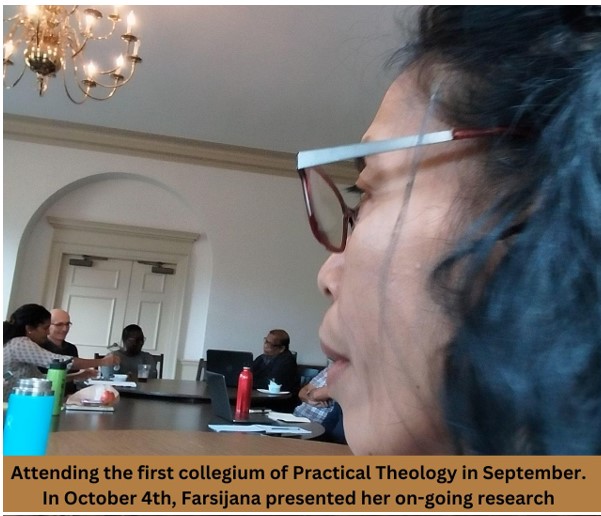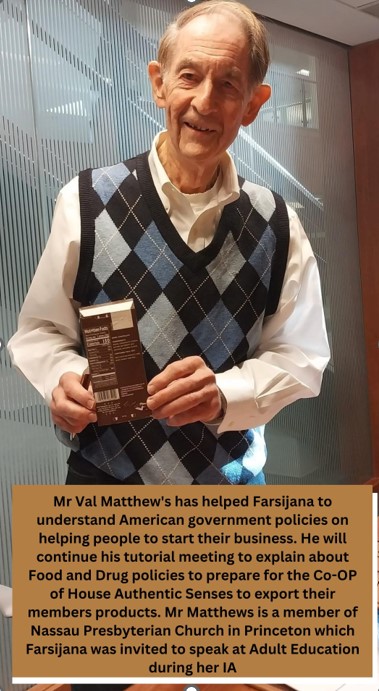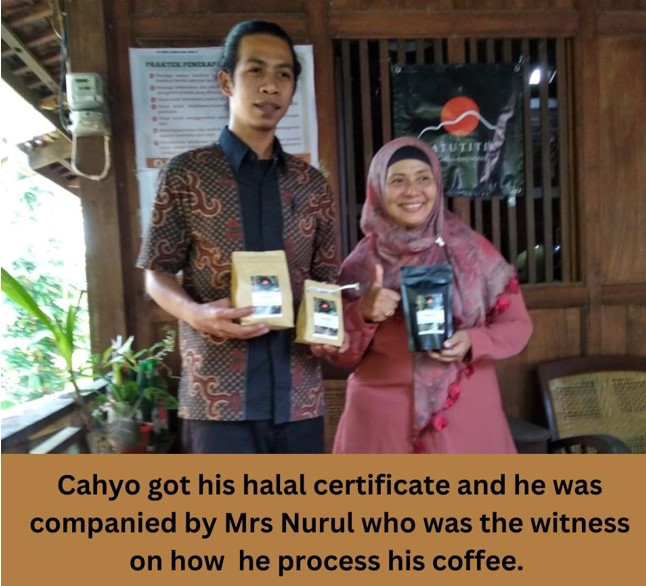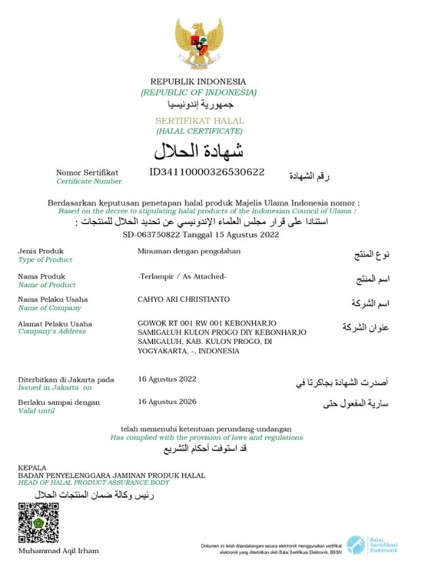A Letter from Farsijana Adeney-Risakotta, serving in Indonesia
Fall 2022
Write to Farsijana Adeney-Risakotta
Individuals: Give online to E132192 in honor of Farsijana Adeney-Risakotta’s ministry
Congregations: Give to D500115 in honor of Farsijana Adeney-Risakotta’s ministry
Churches are asked to send donations through your congregation’s normal receiving site (this is usually your presbytery)
Subscribe to my co-worker letters
Dear friends, colleagues and families,
At a Practical Theology collegium meeting where I was given the opportunity to discuss my research, I held up a packet of chocolates I bought at a supermarket in Princeton. Holding it, I asked the collegium participants, “What is your reaction when you want to buy chocolate with the phrase halal (permissible) on it?” Some participants were silent. Some answered, “I would not be interested in buying it!”
Then I asked, “Would you be interested in buying a chocolate product that has a halal brand if you knew the story that this chocolate is produced by Muslim and Christian farmers who work together in Indonesia. Remote village farmers sell chocolate beans as members of the House of Authentic Sense Consumer (HAS) Co-op. Some answered, “I might be interested.”
I continue to ask, “What happens if the chocolate farmer is a Christian who gets the halal brand because there is a Muslim woman who is a witness that the way of making chocolate is free from elements that are considered haram ( forbidden) in Islamic teachings? When one buys chocolate one can scan the QR code to read stories about its origin.
The lecture participants thought and remained silent. Someone asked, “Does this really happen”?Hmm, that’s an interesting introduction before I start my presentation about the research I’m working on while at Princeton Theological Seminary.
Joshua Ralston, a theologian of Arab descent, wrote a book on sharia law while in dialogue with other western theologians. His book is entitled, “Law and the Rule of God: A Christian Engagement with Shari’a.” In his book, he openly discusses Christian and Islamic theology without polemics or apologetics. He uses a dialogue approach while employing a comparative religious framework to encourage Christian involvement in interacting with Islamic theologians regarding shari’a. Shari’a means the way of God.
My research pays attention to this discussion, but at the same time builds a theology from practical living together experienced by the Christian community in the Muslim-majority society in Indonesia.
The practice of shari’a was carried out before Western traders arrived in Indonesia. The struggle for control of trade routes led to monopolies by European traders. Dutch historians have uncovered records that demonstrated that the colonialists’ treatment of the local population led to protests and wars between immigrants and natives. Thankfully, the Dutch government was made aware of the situation and the unethical practices were questioned in the Netherlands. [
The upheaval led to Indigenous rights in the Netherlands’ East Indies being debated in the Netherlands and resulted in a change in policy toward the people in the colony. The Dutch government gave equal rights to Muslims and Christians to establish businesses and trade freely. In 1928, the Dutch government allowed Muslims to form a trading organization called “Sarekat Islam” (Islam Association). This trade organization was a cooperative.
When Indonesia became independent in 1945, it did not choose to become an Islamic state. Indigenous Christian leaders entered into negotiations to insure that the state ideology guarantees equality of all citizens under the law. Indonesia’s official foundational philosophical theory comprising five principles is called Pancasila. These principles are belief in the Deity, civilized humanity, Indonesian unity, sovereign of people and universal social justice. Indonesia incorporated the concept of sharia, in its philosophical framework of Pancasila to ensure that all of its citizens had equal access to social, economic, political and religious well-being.
Even though HAS Co-op is not regulated by Islamic shari’a law, its chairman Ustadz Beny Susanto remarks that the values of justice and mutual cooperation are upheld in the way the co-op is administered. Cahyo, a Christian youth who produces ground coffee now can put the sign “halal” on the packaging. The sign announces to Muslim buyers that the product has been carefully prepared and has not come into contact with any haram ingredients during the process of production. Cahyo’s process of production was witnessed by Mrs. Nurul, a Muslim woman who attested to his product’s purity. Therefore, when religious rights are protected in the public space they can be seen as rules aimed at helping and respecting each other
I often bring this kind of experience into my classroom when I teach my course on Social Entrepreneurship. Social Entrepreneurship is now one of the areas of study within the Master of Management program in the Business faculty at Duta Wacana Christian University.
Development programs must be carried out with patience, willingness to spend time working with many people, as well as sharing knowledge and available resources. But at the same time, I must be aware and careful so that development programs not seen as being mandated from above, but, instead, is inspired by the desires of the people who they will serve
Celebrating Christmas in 2022 is also a chance to welcome the new year welcome the continuation of the 21st century and the third year of the 2020s decade. The world is still shaken by the impact of the pandemic and the Russia-Ukraine war which is directly weakening the global economy. It is a blessing to be grateful for the members of the Co-op of HAS Consumer who are still able to produce and sell their products through the various efforts made by the Co-op management. Together with grassroots community members who continue to produce, members of the Co-op have been involved in building the nation’s economy.
This is the time for us to thank the Presbyterian churches who continue to support efforts to alleviate poverty in Indonesia. My ministry could not have reached this stage without prayer, financial support and cooperation with individuals, groups and the church itself. It is a Christmas gift for all of us, because Cahyo, is the first member of the HAS Co-op to receive a halal certificate.
I will be visiting churches in New Mexico and on the West Coast where Bernie will meet me there in 2023. May the season of Advent give us the joy of preparing ourselves to welcome the baby Jesus, the peace and the redeemer of the world.
Salam (peace)
Farsijana Adeney-Risakotta
![]() You may freely reuse and distribute this article in its entirety for non-commercial purposes in any medium. Please include author attribution, photography credits, and a link to the original article. This work is licensed under a Creative Commons Attribution-NonCommercial-NoDeratives 4.0 International License.
You may freely reuse and distribute this article in its entirety for non-commercial purposes in any medium. Please include author attribution, photography credits, and a link to the original article. This work is licensed under a Creative Commons Attribution-NonCommercial-NoDeratives 4.0 International License.
